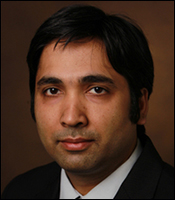Vanderbilt University and the Metropolitan Government of Nashville and Davidson County have expanded their working relationship by creating a framework to increase collaboration on projects focused on intelligent and connected urban infrastructure and services.
As partners in the new Intelligent Ecosystem Collaborative, Metro Government will identify potential projects that have a need for further investigation, and Vanderbilt will identify research teams that are aligned with the research needs.

“Our primary goal is to build new working relationships and establish an active, productive network in order to develop equitable solutions that solve real problems that exist,” noted Keith Durbin, Metro Government’s Chief Information Officer and Director of Information Technology.
Through this network, both Metro and Vanderbilt will be positioned to take advantage of increased opportunities for federal funding to advance projects and services that improve community outcomes for Nashville and Middle Tennessee residents.
In the future, the collaboration will expand to include additional academic and community partners, particularly Historically Black Colleges and Universities (HBCUs) and local community service organizations.
“This collaboration will support long-term efforts toward supporting the life, health, and safety of our community, creating livable, sustainable neighborhoods, and ensuring opportunities for all,” said Kristin Wilson, Metro Government’s Chief of Operations and Performance.

Abhishek Dubey, assistant professor of computer science and computer engineering, is the collaborative’s lead organizer. Hiba Baroud, assistant professor of civil and environmental engineering, is Vanderbilt’s Littlejohn Dean Faculty Fellow and a co-organizer of the collaborative.
“We’ve proven that we can achieve far more for our communities through current partnerships with Nashville WeGo, Nashville Fire Department, Metro Information Technology Services, the City of Houston, the City of Chattanooga, Fort Campbell, TDOT I-24 Collaboration, Greater Nashville Regional Council, and others,” said Philippe Fauchet, Vanderbilt’s Bruce and Bridgitt Evans Dean of Engineering. “Drawing on real-world data to help provide solutions to the challenges cities face has never been more important.”
Vast amounts of data and electronic infrastructure create complex, interconnected systems. These systems must optimize in order to address issues involving mobility, safety, inclusiveness, resource management, risk mitigation, resilience, and more.
To facilitate collaboration, participants at a February kick-off session identified four areas of opportunity to use Vanderbilt’s expertise in data-driven approaches to potential solutions:
- Responsive, Transparent, and Engaged Safe Cities
- Smart Mobility
- Adaptive, Resilient, Sustainable Infrastructure
- Equitable and Inclusive Communities
Going forward, teams of researchers and Metro leaders will be organized by areas of project focus to connect and explore their mutual interests and ideas around projects that can utilize data and novel technologies to solve local challenges and improve the quality of life for residents of Nashville and Middle Tennessee.

“This collaborative presents a unique opportunity to build and strengthen long-lasting partnerships between academic institutions and the Metropolitan Government, which will enable community-driven projects that transition research and innovation into implementation,” Baroud said.
Vanderbilt researchers’ expertise in community studies and social sciences along with engineering disciplines such as sensor networks, computer vision, data science, AI, machine learning, intelligent control, autonomous vehicles, smart grids, and next-gen infrastructure are already in use in current partnerships.
“The problems facing our communities are complex and require synergistic efforts that are at the pinnacle of urban planning, artificial intelligence, data science, and community studies. The expertise at the Metropolitan Government and the technical expertise at Vanderbilt University and our other academic partners provide the right balance to develop comprehensive, data-driven interventions, especially as we study new and innovative ways to tackle these critical issues,” said Dubey.
Contact: Brenda Ellis, 615 343-6314
brenda.ellis@vanderbilt.edu